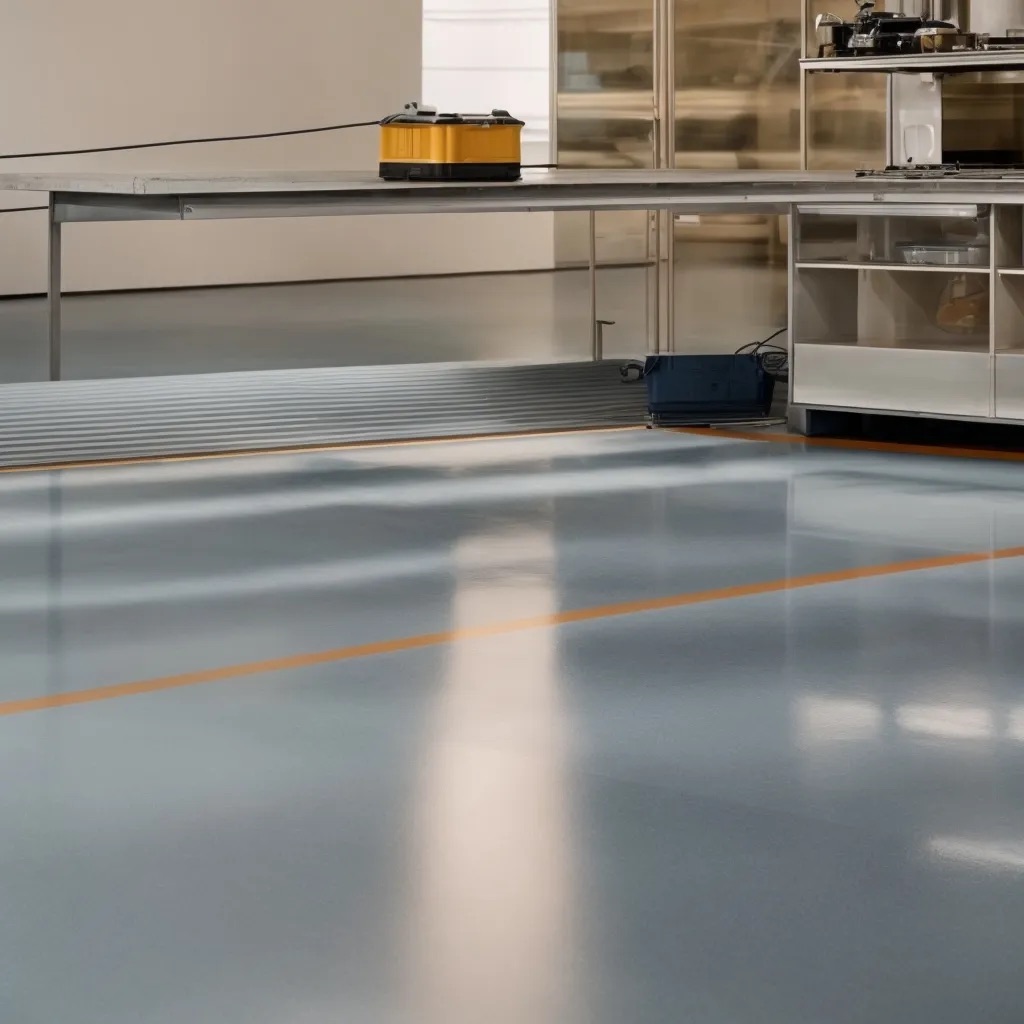
When it comes to flooring solutions, epoxy has long been the go-to choice for many industrial, commercial, and residential settings. However, there’s a rising star in the flooring world that’s gaining attention for its superior qualities: urethane flooring. In this article, we’ll delve into the advantages of urethane flooring, highlighting its exceptional durability, chemical resistance, high-gloss finish, and sustainable features, making it the preferred choice for eco-conscious consumers and businesses alike.
What is Urethane Flooring?
Urethane flooring, also known as polyurethane flooring, is a type of resinous flooring that offers outstanding durability and chemical resistance. It consists of a combination of polyurethane resins and other additives that are applied as a coating to concrete substrates. Urethane flooring is available in various formulations, including water-based and solvent-based options, making it suitable for a wide range of environments.
Advantages of Urethane Flooring
- Exceptional Durability
One of the key advantages of urethane flooring is its exceptional durability. Urethane coatings form a tough, protective layer over the concrete substrate, making them highly resistant to abrasion, impact, and heavy foot traffic. This durability ensures that urethane floors can withstand the rigors of industrial environments, commercial spaces, and even high-traffic areas in residential settings.
- Chemical Resistance
Urethane flooring offers superior chemical resistance compared to many other types of flooring, including epoxy. This makes it an ideal choice for environments where exposure to harsh chemicals, acids, oils, and solvents is common, such as laboratories, manufacturing facilities, food processing plants, and automotive garages. The non-porous nature of urethane coatings prevents chemicals from penetrating the surface, ensuring easy cleanup and maintenance.
- High-Gloss Finish
Another standout feature of urethane flooring is its high-gloss finish, which adds a touch of elegance and sophistication to any space. The glossy surface not only enhances the aesthetic appeal of the flooring but also provides a smooth, seamless finish that is easy to clean and maintain. Additionally, urethane coatings are available in a variety of colors and finishes, allowing for customization to suit the design preferences of any environment.
- Sustainable Features
In addition to its exceptional performance characteristics, urethane flooring also offers sustainability and environmental benefits that make it an attractive choice for eco-conscious consumers and businesses. These include:
Low VOC Emissions
Volatile organic compounds (VOCs) are chemicals that can off-gas from certain building materials, contributing to indoor air pollution and potential health risks. Urethane flooring formulations are available with low VOC options, minimizing the release of harmful chemicals into the indoor environment. This not only promotes better indoor air quality but also helps to create healthier and safer spaces for occupants.
Longevity and Lifecycle Benefits
The exceptional durability of urethane flooring results in a longer service life compared to many other flooring options. This longevity reduces the need for frequent replacements, minimizing the environmental impact associated with the manufacturing, transportation, and disposal of flooring materials. As a result, urethane flooring contributes to resource conservation and a more sustainable built environment.
Energy Efficiency
The high-gloss finish of urethane flooring enhances light reflectivity, optimizing natural and artificial lighting within a space. By reducing the demand for additional lighting fixtures and energy consumption, urethane flooring supports energy efficiency efforts and helps lower carbon emissions over time.
Recyclability and Reusability
Some urethane flooring products are designed to be recyclable or reusable at the end of their service life. This means that old urethane flooring materials can be collected, processed, and transformed into new products or incorporated into other construction materials, reducing waste and conserving resources. Choosing recyclable or reusable urethane flooring contributes to a circular economy and minimizes the environmental impact of flooring systems.
Urethane vs. Epoxy Flooring
While epoxy flooring has been a popular choice for many years, urethane flooring offers several advantages that make it a superior alternative in certain applications. Here’s a comparison of urethane vs. epoxy flooring:
- Durability: Urethane flooring is generally more durable and resistant to wear and tear than epoxy flooring, making it ideal for high-traffic areas.
- Chemical Resistance: Urethane coatings provide better resistance to chemicals, oils, and solvents compared to epoxy, making them suitable for environments where chemical exposure is a concern.
- UV Stability: Urethane flooring offers superior UV stability, making it less prone to yellowing and discoloration over time when exposed to sunlight, unlike epoxy.
- Flexibility: Urethane coatings have greater flexibility and elasticity than epoxy, allowing them to withstand substrate movement and thermal expansion without cracking or delamination.
Best Practices for Installing Urethane Flooring
To ensure the optimal performance and longevity of urethane flooring, it’s essential to follow best practices during the installation process:
- Surface Preparation: Proper surface preparation is critical to the success of urethane flooring installations. This includes thorough cleaning, repairing any cracks or defects in the substrate, and ensuring that the surface is free of contaminants.
- Primer Application: Applying a suitable primer helps to promote adhesion between the urethane coating and the concrete substrate, ensuring a strong bond and preventing delamination.
- Professional Installation: While DIY installation kits are available for urethane flooring, it’s recommended to hire a professional contractor with experience in resinous flooring systems to ensure a flawless finish and optimal performance.
- Regular Maintenance: To keep urethane flooring looking its best and maintain its protective properties, regular maintenance is essential. This includes routine cleaning, periodic inspections for signs of wear or damage, and timely recoating when necessary.
Key Takeaways
- Urethane flooring offers exceptional durability, chemical resistance, and a high-gloss finish, making it a superior choice for industrial, commercial, and residential applications.
- Compared to epoxy flooring, urethane coatings provide better resistance to wear and tear, chemicals, and UV exposure.
- Proper surface preparation, primer application, and professional installation are essential for ensuring the optimal performance and longevity of urethane flooring.
- Urethane flooring also boasts sustainability and environmental benefits, including low VOC emissions, longevity, energy efficiency, and recyclability/reusability.
- Consider urethane flooring not only for its performance and aesthetic appeal but also for its positive impact on indoor air quality, resource conservation, and overall sustainability.
Urethane flooring represents a superior flooring solution that combines exceptional performance with sustainability and environmental responsibility. Whether you’re upgrading a commercial facility, renovating a residential space, or designing a new construction project, urethane flooring offers the perfect combination of durability, aesthetics, and eco-friendliness. Embrace the advantages of urethane flooring and create spaces that are not only beautiful and resilient but also environmentally friendly and sustainable for generations to come.
